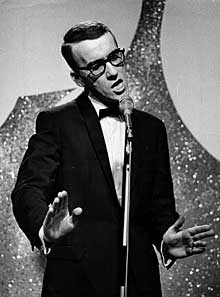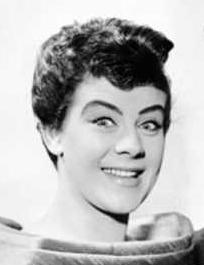
Melodifestivalen is an annual song competition organised by Swedish public broadcasters Sveriges Television (SVT) and Sveriges Radio (SR). It determines the country's representative for the Eurovision Song Contest, and has been staged almost every year since 1959. In the early 2000s, the competition was the most popular television program in Sweden; it is also broadcast on radio and the Internet. In 2012, the heats averaged 3.3 million viewers, and over an estimated four million people in Sweden watched the final, almost half of the Swedish population.

Sweden has participated in the Eurovision Song Contest 62 times since making its debut in 1958, missing only three contests since then. Since 1959, the Swedish entry has been chosen through an annual televised competition, known since 1967 as Melodifestivalen. At the 1997 contest, Sweden was one of the first five countries to adopt televoting. Sweden has hosted the contest six times: three times in Stockholm, twice in Malmö and once in Gothenburg (1985); and is set to host for a seventh time in 2024 in Malmö.

Siw Gunnel Margareta Malmkvist is a Swedish schlager singer and actress popular in Scandinavia and West Germany. She had a number one hit in West Germany in 1964 with "Liebeskummer lohnt sich nicht", and on 18 July 1964 she became the first Swede to have a hit on the US Billboard Hot 100 chart, when "Sole Sole Sole", a duet with Italian singer Umberto Marcato, entered the chart, peaking at No. 58.

Svante Thuresson was a Swedish jazz musician. He started his career as a drummer before joining the band Gals and Pals in 1963. Svante won the national selection and represented Sweden in the Eurovision song contest in 1966 with Nygammal vals and came in second place; he performed with Lill Lindfors.
Melodifestivalen is an annual song competition organised by Swedish public broadcasters Sveriges Television (SVT) and Sveriges Radio (SR). It determines the country's representative for the Eurovision Song Contest, and has been staged almost every year since 1959.
Sweden chose its entry for Eurovision Song Contest 1960 by the national final, Melodifestivalen 1960. The winning song, "Alla andra får varann" was performed once by Östen Warnerbring and once by Ingrid Berggren. However Sveriges Radio decided that Siw Malmkvist would represent Sweden, as she had been denied that the previous year.
Sweden chose their entrant for the Eurovision Song Contest 1961 through Melodifestivalen 1961. The song "April, april", performed once with Siw Malmkvist, once with Gunnar Wiklund, won. However, none of them was considered acceptable for singing in ESC, so Lill-Babs was chosen as representative instead. In the contest, once more held in Cannes, she finished in 14th place.
In the Eurovision Song Contest 1968, Sweden was represented by Claes-Göran Hederström with the song "Det börjar verka kärlek, banne mig", written and composed by Peter Himmelstrand. It finished 5th with 15 points, including 6 from Norway, the highest number of votes awarded that year.
Sweden chose their entrant for Eurovision Song Contest 1969 through Melodifestivalen 1969. A tie occurred between two songs, but after additional voting, the song "Judy, min vän" with Tommy Körberg was selected. It was written by Roger Wallis and Britt Lindeborg. The other song, "Hej clown" was written by Lasse Berghagen and later ABBA member Benny Andersson.

"Lilla stjärna" performed by Alice Babs was the Swedish entry to the Eurovision Song Contest 1958 held in Hilversum, the Netherlands. This was Sweden's first song in the contest, and the first time that the Swedish language was performed on the Eurovision stage.
Sweden was represented by One More Time with the song "Den vilda" in the Eurovision Song Contest 1996.

Östen Warnerbring, also known as Östen med Rösten, was a Swedish singer, musician, composer and lyrics writer who mastered several musical genres. He started out as a jazz musician but over the years, he became known as a singer of other popular music, such as schlager music, and of Swedish poetry put into music by himself. In the 1970s, he became one of the first Swedish artists to use his native accent, of the province of Scania (Skåne) in the south of Sweden, also while singing.

Brita Kerstin Gunvor Borg was a Swedish singer, actress, and variety show artist. Her variety show career spanned from 1943 into the 1970s, while her singing career trailed away at the end of the 1960s. However, she was still an active actress in the 1980s. Borg represented Sweden in the Eurovision Song Contest 1959 in Cannes.
Sweden participated in the Junior Eurovision Song Contest 2013 in Kyiv, Ukraine. The Swedish entry was selected through Lilla Melodifestivalen 2013 which consisted of eight songs. The final was held on 6 June 2013 at the Gröna Lund amusement park in Stockholm. Eliias and his song "Det är dit vi ska" was chosen as the winner.

Åke Gerhard was a Swedish songwriter. His songs won the title for the first three years of Sweden's Melodifestival: In 1958 "Lilla stjärna" Little star sung by Alice Babs, in 1959 "Augustin" sung by Siw Malmkvist with lyrics by Harry Sandin and in 1960 "Alla andra får varann" Everyone else gets each other with lyrics by Ulf Kjellqvist.
Sweden participated in the Eurovision Song Contest 2016 with the song "If I Were Sorry" written by Oscar Fogelström, Michael Saxell, Fredrik Andersson and Frans Jeppsson Wall. The song was performed by Frans. In addition to participating in the contest, the Swedish broadcaster Sveriges Television (SVT) also hosted the Eurovision Song Contest after winning the competition in 2015 with the song "Heroes" performed by Måns Zelmerlöw. SVT organised the national final Melodifestivalen 2016 in order to select the Swedish entry for the 2016 contest in Stockholm. After a six-week-long competition consisting of four heats, a Second Chance round and a final, "If I Were Sorry" performed by Frans emerged as the winner after achieving the highest score following the combination of votes from eleven international jury groups and a public vote.
Melodifestivalen 2017 was the 57th edition of the Swedish music competition Melodifestivalen, which selected Sweden's entry for the Eurovision Song Contest 2017. The competition was organised by Sveriges Television (SVT) and took place over a six-week period between 4 February and 11 March 2017.
Sweden participated in the Eurovision Song Contest 2018. The Swedish broadcaster Sveriges Television (SVT) organised the national final Melodifestivalen 2018 in order to select the Swedish entry for the 2018 contest in Lisbon, Portugal. After a six-week-long competition consisting of four heats, a Second Chance round and a final, "Dance You Off" performed by Benjamin Ingrosso emerged as the winner after achieving the highest score following the combination of votes from eleven international jury groups and a public vote.

Britt Damberg was a Swedish Schlager and jazz singer and occasional actress.
This is a list of Swedish television-relatedevents from 1959.








